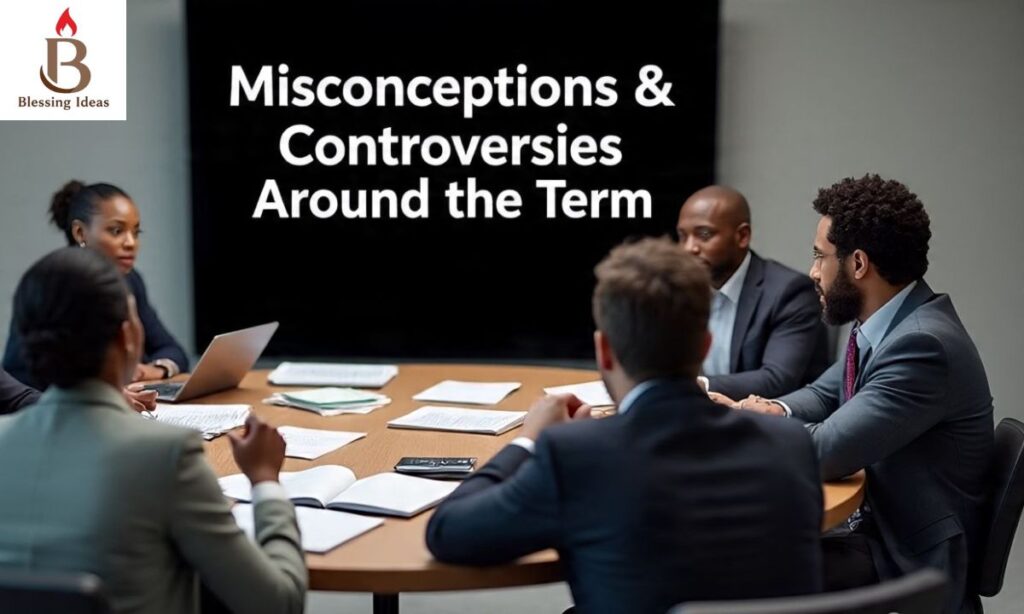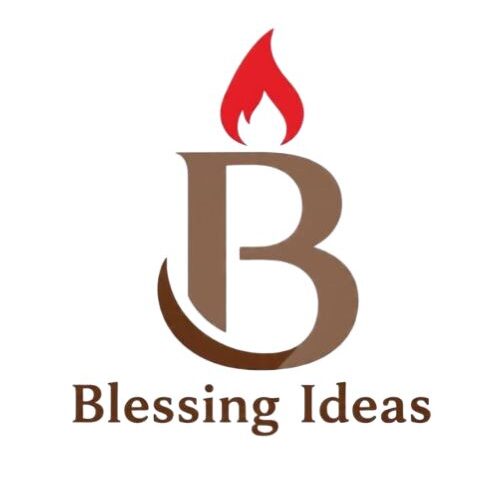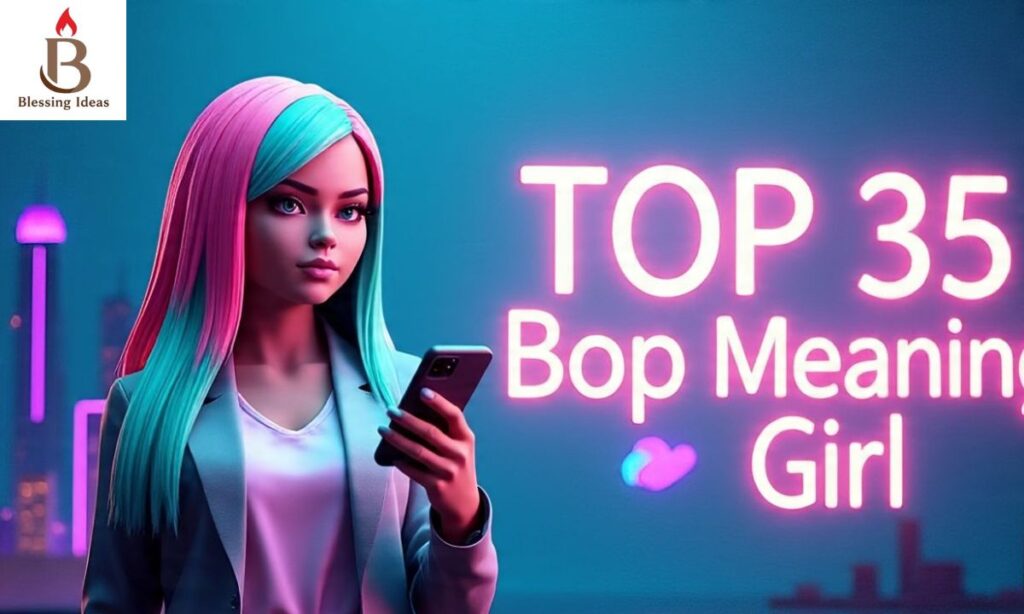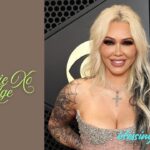The term “bop” has become one of the most debated slang words in modern culture, especially when used to describe women. From TikTok videos to rap lyrics, this word carries different meanings that can either empower or offend. Understanding what “bop” means in 2025 is essential for navigating today’s digital conversations.
In pop culture, language evolves rapidly. What started as a jazz term has transformed into complex slang with multiple interpretations. Whether you’ve seen it trending on social media or heard it in the latest hits, knowing how “bop” is used can help you communicate more effectively.
Origin and Evolution of the Term “Bop”
Early Meanings of Bop
Jazz Foundation (1940s): The word “bop” originally came from bebop, a revolutionary jazz style. Artists like Charlie Parker and Dizzy Gillespie popularized this fast-paced musical genre that influenced American culture profoundly.
Dance Culture (1950s): “Bop” described energetic dance moves popular in post-war America. Young people would “bop” to rock and roll, creating a connection between the word and youthful energy.
Physical Action: In everyday language, “bop” meant to hit or strike lightly. Parents might say they’d “bop” a child on the head for misbehavior, establishing the word’s casual, non-threatening nature.
Modern Slang Evolution
Hip-Hop Transformation (1990s-2000s): Rap culture began using “bop” to describe catchy songs. A “bop” became synonymous with a track that made people want to dance or move to the beat.
Urban Dictionary Influence: Online platforms helped spread new definitions. “Bop” started describing women, though interpretations varied widely between positive and negative meanings.
Social Media Acceleration (2010s-2020s): Platforms like Twitter, Instagram, and TikTok rapidly spread the term. Hashtags and viral content shaped how different communities understood and used “bop.”
Regional & Cultural Differences
East Coast vs West Coast: Different regions interpret “bop” uniquely. East Coast usage often leans more positive, while some West Coast communities use it more critically.
Generational Gaps: Gen Z tends to use “bop” more playfully, while millennials might stick to older meanings. Baby boomers rarely understand the modern context.
Cultural Communities: African American communities, where much hip-hop slang originates, have nuanced understandings that mainstream culture sometimes misses or oversimplifies.
Different Meanings of “Bop” When Referring to a Girl
Positive Meaning
Fashion Icon Status: A “bop” girl sets trends and influences style. She’s someone others look to for fashion inspiration, always appearing put-together and confident.
Social Media Queen: On platforms like Instagram and TikTok, being called a “bop” often means having exceptional content, style, or personality that attracts followers and engagement.
Confidence Embodiment: The positive “bop” represents self-assurance. She knows her worth, carries herself well, and doesn’t let others define her value.
Dance Skills: Sometimes “bop” refers to exceptional dancing ability. A girl who can “bop” moves confidently to any rhythm, commanding attention through her skills.
Magnetic Personality: A “bop” draws people in through charisma. She’s fun, engaging, and makes others feel good about themselves when they’re around her.
Negative or Derogatory Meaning
Promiscuity Implications: Unfortunately, “bop” sometimes suggests a woman is sexually promiscuous. This usage perpetuates harmful stereotypes and reduces women to sexual objects.
Reliability Questions: In negative contexts, calling someone a “bop” might imply they’re untrustworthy in relationships or friendships, moving from person to person without commitment.
Superficiality Suggestions: Some use “bop” to dismiss women as shallow or focused only on appearance, ignoring their intelligence, talents, or deeper qualities.
Rap Culture Influence: Certain hip-hop songs use “bop” derogatorily, influencing how young listeners interpret and apply the term in their own lives.
Context Matters
Speaker Relationships: A close friend calling you a “bop” carries different weight than a stranger using the term. Familiarity and intent significantly affect meaning.
Tone and Setting: The same word can be complimentary in casual conversation but insulting in formal settings or when said with sarcasm or aggression.
Personal Comfort Levels: Some women embrace being called a “bop” while others find it offensive. Individual reactions vary based on personal experiences and cultural background.
“Bop” in Music and Pop Culture
Songs That Popularized “Bop”
“BOP” by DaBaby (2019): This chart-topping hit used “bop” to describe both a catchy song and party atmosphere, helping mainstream the term’s positive musical association.
“She’s a Bop” by Yung Gravy: This track exemplifies the term’s dual nature, simultaneously celebrating and objectifying women, sparking discussions about respectful language in music.
Drake’s Usage: The influential rapper has used “bop” in various songs, lending credibility to the term among hip-hop fans and influencing its broader cultural acceptance.
TikTok Viral Songs: Numerous TikTok-famous tracks feature “bop,” often in contexts that young users then adopt and spread through their own content and conversations.
Influence of Musicians
Female Rapper Perspectives: Artists like Megan Thee Stallion and Cardi B have reclaimed terms like “bop,” using them as empowerment tools rather than accepting negative definitions.
Male Artist Responsibility: How male musicians use “bop” significantly influences public perception. Respectful usage can positive, while derogatory applications can harm.
Cross-Genre Adoption: Pop, R&B, and even country artists now use “bop,” demonstrating how hip-hop slang permeates various musical styles and audiences.
How “Bop” is Used in Everyday Conversations
Examples in Sentences
Positive Usage:
- “Sarah is such a bop – she always looks amazing and has the best energy!”
- “Did you see her outfit? Total bop vibes!”
- “This song is a bop, and so is the girl who recommended it!”
Negative Usage:
- “Don’t trust her, she’s just a bop who plays with people’s feelings.”
- “He called her a bop, which was completely disrespectful.”
Texting & Social Media Usage
Instagram Comments: Users frequently comment “She’s a bop!” on photos, usually meaning the person looks great or has excellent style.
TikTok Captions: Creators use #bop to describe their content, themselves, or trending songs, often mixing multiple meanings playfully.
Twitter Discussions: The platform hosts ongoing debates about “bop” usage, with users sharing experiences and opinions about the term’s appropriateness.
Snapchat Stories: Friends might caption photos with “bop energy” to celebrate confidence or style, creating positive associations within friend groups.
Slang Variations & Related Terms
“Baddie”: Similar to positive “bop” usage, describes a confident, attractive woman who knows her worth and isn’t afraid to show it.
“It Girl”: Represents someone trending or popular, often used interchangeably with positive “bop” meanings in social media contexts.
“Queen”: Another empowering term that shares positive “bop” characteristics, celebrating women’s confidence, success, or overall excellence.
“Snack”: Describes someone attractive, sometimes used alongside “bop” to emphasize physical appeal combined with personality.
“Vibe”: Can replace “bop” when describing someone’s overall energy or aesthetic appeal, offering a more neutral alternative.
Misconceptions & Controversies Around the Term

Why Some Find “Bop” Offensive
Historical Baggage: The term’s association with promiscuity creates discomfort for women who feel it reduces them to sexual objects rather than complete individuals.
Double Standards: Society often judges women differently than men for similar behaviors. Terms like “bop” can reinforce these unfair standards and expectations.
Intersectionality Issues: Women of color, particularly Black women, may face additional scrutiny when labeled with terms originating from their own cultural communities.
Professional Impact: Being called a “bop” might affect how women are perceived in workplace or academic settings, potentially damaging professional relationships.
Can It Be Reclaimed?
Empowerment Movement: Some women actively reclaim “bop,” similar to how “boss” or “diva” became positive. They use it to celebrate confidence and self-expression.
Community Control: When communities that originated slang terms control their usage, meanings can shift positively rather than being defined by outside interpretations.
Media Representation: Movies, TV shows, and music that portray “bops” positively can help change public perception and reduce negative associations.
Educational Discussions: Open conversations about language impact help people understand why certain terms can be harmful and how to communicate more respectfully.
Social Media Backlash
Cancel Culture Debates: Some users face criticism for using “bop” inappropriately, leading to discussions about accountability in online spaces.
Platform Policies: Social media companies sometimes restrict content containing terms deemed offensive, though “bop” rarely faces such limitations due to its ambiguous nature.
Influencer Responsibility: Popular content creators influence how their followers use language, making their “bop” usage particularly impactful on young audiences.
Trending Discussions: Regular viral debates about “bop” keep the conversation active, helping users think more critically about language choices and their effects.
Conclusion
The meaning of “bop” when referring to women in 2025 remains complex and context-dependent. While it can celebrate confidence, style, and positive energy, it can also perpetuate harmful stereotypes about women’s sexuality and worth.
Understanding this term requires recognizing its cultural origins, various interpretations, and ongoing evolution. Whether used positively or negatively, “bop” reflects broader conversations about respect, empowerment, and how language shapes our perceptions of women.






